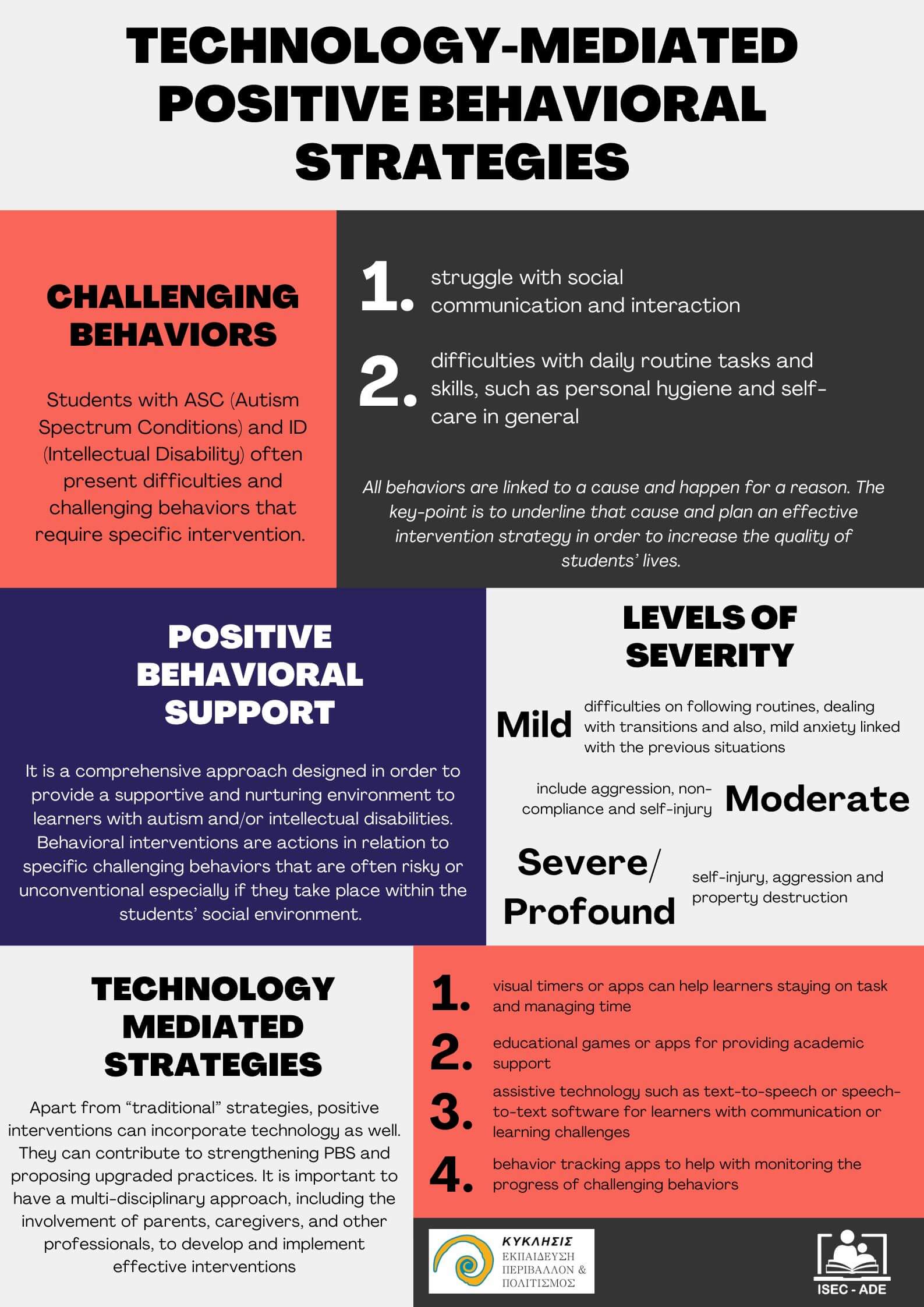Technology-mediated positive behavioral Intervention
By Yiannis Karoumpalos
Students with ASC (Autism Spectrum Conditions) and ID (Intellectual Disability) often present difficulties and challenging behaviors that require specific intervention. They usually struggle with social communication and interaction, which can contribute to challenging behaviors. Additionally, they may present difficulties with daily routine tasks and skills, such as personal hygiene and self-care in general. All behaviors are linked to a cause and happen for a reason. The key-point is to underline that cause and plan an effective intervention strategy in order to increase the quality of students’ lives.

In this context, Positive Behavioral Support (PBS) has been developed. It is a comprehensive approach designed in order to provide a supportive and nurturing environment to learners with autism and/or intellectual disabilities. It is based on educational and research-based strategies and incorporates multiple interventions to address students' unique needs and abilities and implement the most appropriate teaching skills and decrease challenging behaviors. Behavioral interventions are actions in relation to specific challenging behaviors that are often risky or unconventional especially if they take place within the students’ social environment. Learners with ASC/ID are required a method/approach that respects their dignity and limits, is adjustable to their lifestyle and preferences and involves teaching alternative skills to support them. In that way, PBS is essential for managing and understanding challenging behaviors.
As mentioned before these behaviors are diverse and unique according to the profile of each student. In order to better understand the characteristics which, distinguish each case, and then plan an effective interventional strategy, there has been a categorization on levels of severity of behaviors. Briefly, there are three levels of severity that differentiate the behaviors of learners with ASC/ID: Mild, Moderate, Severe/Profound. Students with Mild behavior severity often exhibit difficulties on following routines, dealing with transitions and also, they present mild anxiety linked with the previous situations. Moderate severity behaviors include aggression, non-compliance and self-injury. Severe cases of ASC/ID exhibit relatively similar behaviors to moderate such as, self-injury, aggression and property destruction. Each level of severity requires different approach and interventional strategy. Yet, each case of student can also present distinguishing characteristics as they are not cases with absolute "symptoms" but are part of a spectrum.
Apart from “traditional” strategies, positive interventions can incorporate technology as well. In the following, reference is made to technology mediated strategies that can contribute to strengthening PBS and proposing upgraded practices. The use of visual timers or apps can help learners staying on task and managing time. It is recommended to implement educational games or apps for providing academic support. For learners with communication or learning challenges assistive technology such as text-to-speech or speech-to-text software can be used. There are also behavior tracking apps to help with monitoring the progress of challenging behaviors. Lastly, it is suggested to use video modelling or social stories to teach and reinforce appropriate behaviors and social skills. It is important to have a multi-disciplinary approach, including the involvement of parents, caregivers, and other professionals, to develop and implement effective interventions.
